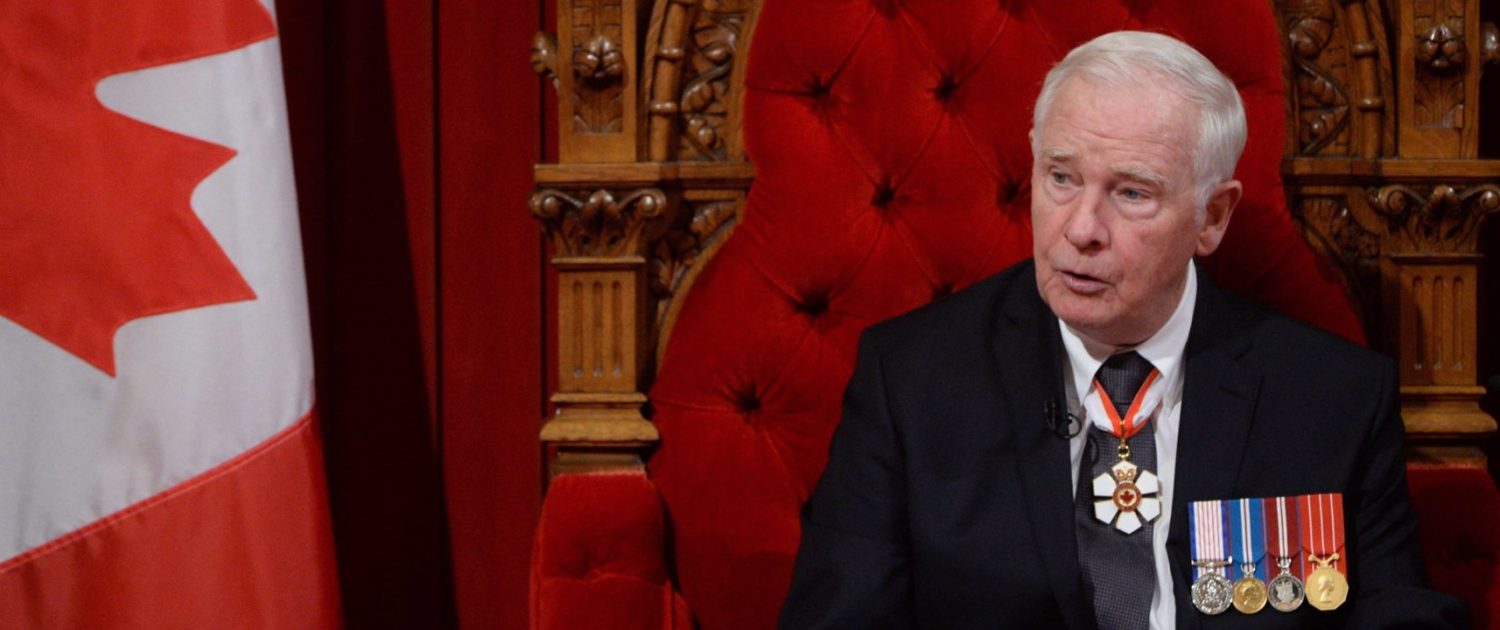2007 – Present
I join with all Canadians on this first National Day for Truth and Reconciliation to reflect on the painful history that Indigenous peoples endured in residential schools in Canada, and on the work that remains to heal and to continue to build an inclusive society. Elizabeth R.
As the people of Canada experience profound and rapid changes to their lives, we are all concerned about the future. It may be difficult to remain hopeful when faced with loss and uncertainty, but Canadians have many reasons for optimism, even in the most trying times.
Across Canada, countless people continue to care for the most vulnerable and to provide essential services for their fellow citizens. I am thankful for their dedication and for the hope it offers.
In the coming weeks and months, the people of Canada will need to continue to work together to ensure the health and vitality of our communities. I know that Canadians will remain optimistic and will rise to the challenges ahead.
My thoughts and prayers are with the people of Canada at this time. Elizabeth R.
In my lifetime, Canada’s development as a nation has been remarkable. This vast, rich and varied country has inspired its own and attracted many others by its adherence to certain values. Some are enshrined in law but I should imagine just as many are simply found in the hearts of ordinary Canadians.
My mother once said that this country felt like a home away from home for The Queen of Canada. Prime Minister, I am pleased to report that it still does.
As proud and grateful Canadians, we pause today to mark not only the ninety-third anniversary of this nation’s victory at Vimy Ridge but also to pay tribute to the passing of a truly remarkable generation who helped to end the most terrible conflict the world had ever known[….] This tremendous sacrifice can rightly be regarded as a defining moment in the history of Canada and is one which we will never forget. And now, they are gone –and all Canadians mourn our collective loss. Yet they will remain forever etched in the hearts of a grateful people and on the pages of our history as symbols of service, honour and dedication. In our minds and in our hearts always, we will remember them.
In any national story there are moments and places, sometimes far from home, which in retrospect can be seen as fixed points about which the course of history turns, moments which distinguish that nation for ever. Those who seek the foundations of Canada’s distinction would do well to begin here at Vimy.
2007
Until this day ninety years ago, Vimy Ridge had been impregnable, a lesson learned at terrible cost to the armies of France and Britain. For the Allies, this ridge had become a symbol of futility and despair. It was against this forbidding challenge that the four Divisions of the Canadian Corps were brought together as a single army for the first time.
En l’espace de quelques heures, en ce matin froid et maussade du lundi de Pâques, les Canadiens devinrent maîtres de la crête, réussissant ce que nombreux avaient cru impossible. Leur victoire fut le fruit non seulement d’un ingénieux plan de bataille élaboré par les commandants canadiens, mais surtout du courage et de la détermination avec lesquelles les soldats canadiens exécutèrent leur mission.
No fewer than four Canadians were awarded the Victoria Cross for conspicuous bravery during the battle, though it could easily be said that every soldier in the field demonstrated conspicuous bravery, such was the verve of the Canadian attack. It was a stunning victory. More, in capturing this formidable objective, the Canadian Corps transformed Vimy Ridge from a symbol of despair into a source of inspiration. After two and a half years of deadly stalemate, it now seemed possible that the Allies would prevail and peace might one day be restored.
Ici, en cette terre sacrée par le sacrifice de tant, nous commémorons leur courage et leur exploit. Leur victoire fit davantage que de donner l’espoir; elle permit au Canada, qui le méritait tant, d’occuper sa place sur la scène internationale à titre de fière nation souveraine, forte et libre. Le Monument commémoratif du Canada à Vimy témoigne de la grande force du Canada et de son attachement à la liberté. Il témoigne aussi de la profonde solidarité qui lie le Canada et la France. En dernier lieu, il témoigne surtout de la vaillance, du courage et du sacrifice des braves Canadiens qui ont inspiré un jeune pays à devenir une magnifique nation.
2005 – 2007
To their eternal remembrance, to Canada, to all who would serve the cause of freedom, and to those who have lost their lives in Afghanistan, I rededicate this magnificently restored memorial.
The sixtieth anniversary of the Normandy landings is a moment for thanksgiving, and a moment of commemoration. Today we honour all those who gave their lives in this campaign, and all of you who fought in this great struggle. I know that present and future generations join me in thanking all Canadians who took part in this great venture. On this anniversary day, I join all your countrymen and allies in saluting you, the heroes and veterans of a historic campaign.
During a previous visit 32 years ago I said that […] I want the Crown in Canada to represent everything that is best and most admired in the Canadian ideal. I will continue to do my best to make it so during my lifetime, and I hope you will all continue to give me your help in this task. I would like to repeat those words today as, together, we continue to build a country that remains the envy of the world.
[…]whether watching a chuck wagon race at the Calgary Stampede or athletic prowess at the Montréal Olympics, whether listening to an Inuit song of greeting in Nunavut or the skirl of pipes in Nova Scotia, I have always felt not only welcome but at home in Canada…I have so many vivid memories and a tremendous sense of pride in being part of the Canadian family. This is a relationship I have come to treasure and a country for which I have a deep and abiding affection[….] Your enduring ties to the Crown stand not only for a respect for heritage, but also for the principles of peace, order and good government developed by the Fathers of Confederation who envisaged and worked so diligently to make this country a reality.
2002 – 2005
When we were last here in 1987, I spoke of the Crown in the daily life of Canada, of my role as your Queen and my bond with this land and its people…Premier, you have noted the role of the Crown as a symbol of national identity for Canada and Saskatchewan. To others, one of the strongest and most valued assets of the Crown is the stability and continuity it can bring from the past into the present. My mother once said that this country felt like a home away from home for the Queen of Canada. Ladies and gentlemen, six decades later it still does[…] and it is good to be back.
This stone was taken from the grounds of Balmoral Castle in the Highlands of Scotland—a place dear to my great great grandmother, Queen Victoria. It symbolizes the foundation of the rights of First Nations peoples reflected in treaties signed with the Crown during her reign.
Bearing the cipher of Queen Victoria as well as my own, this stone is presented to the First Nations University of Canada in the hope that it will serve as a reminder of the special relationship between the Sovereign and all First Nations peoples.
1992 – 2002
I treasure my place in the life of Canada, and my bond with Canadians everywhere [….] It is my privilege to serve you as Queen of Canada to the best of my ability, to play my part in the Canadian identity, to uphold Canadian traditions and heritage, to recognize Canadian excellence and achievement and to seek to give a sense of continuity in these exciting, ever-changing times in which we are fortunate enough to live.
It was no coincidence that when I launched the Buckingham Palace website on the internet this year, the link I used was to students in Ontario. It was because Canadians seem to have this natural aptitude for technological wizardry that they were the natural choice.
The people of the North hold a special place in our memories and in our hearts.
It is fitting that here, in the nation’s capital, and before its parliament buildings, we should celebrate this anniversary. I am reminded that I spoke, when I was here last, of the way in which that Canada Day united Sovereign, Parliament and people. Today, as Canadians are working to modernize and improve the Constitution, this unity of its three elements is yet more significant.
1987 – 1992
You have inherited a country uniquely worth preserving. I call on you all to cherish this inheritance and protect it with all your strength.
Our ceremony today brings together Sovereign, Parliament and people—the three parts of constitutional monarchy. That is a system in which those who represent the community come together and remain together, rather than dwelling on differences which might further divide them.
I am and members of my family have been with you on many special days in the life of this country. I particularly recall another July 1st in Canada’s centennial year, here on Parliament Hill. I said then, and I repeat it today, that Canada is a country that has been blessed beyond most countries in the world. It is a country worth working for [….] I am not just a fair weather friend, and I am glad to be here at this sensitive time. I hope my presence may call to mind those many years of shared experience, and raise new hopes for the future. The unity of the Canadian people was the paramount issue in 1867, as it is today. There is no force except the force of will to keep Canadians together [….] I cannot believe that Canadians will not find a way through present difficulties [….]
Parliamentary democracy has fostered tolerance and flexibility—a good balance between individual rights and collective responsibilities. And this is because the constitutional monarchy has always placed the emphasis on people in community—as it were, a national family with the Sovereign as its head.
1977 – 1987
Today I have proclaimed this new constitution [….] There could be no better moment for me, as Queen of Canada, to declare again my unbounded confidence in the future of this wonderful country.
1971 – 1977
My family’s association with this country over many generations allows me to see and to appreciate Canada from another viewpoint, that of history.
I want the Crown to be seen as a symbol of national sovereignty belonging to all. It is not only a link between Commonwealth nations, but between Canadian citizens of every national origin and ancestry [….] I want the Crown in Canada to represent everything that is best and most admired in the Canadian ideal. I will continue to make it so during my lifetime. I hope you will all continue to give me your help in this task.
Canada asks no citizens to deny their forebears, to forsake their inheritance—only that each should accept and value the cultural freedom of others as he enjoys his own. It is a gentle invitation, this call to citizenship [….]
1951 – 1971
Thank you for being just the way you are.
Industry and commerce may bring wealth to a country, but the character of a nation is formed by other factors. Race, language, religion, culture and tradition all have some contribution to make, and when I think of the diversity of these factors in Canada today and the achievements that have grown from their union, I feel proud and happy to be Queen of such a nation.
As I now address you here for the first time, I will call to your memory the words of the earlier Elizabeth, when, more than three centuries ago, she spoke from her heart, to the Speaker and members of her last Parliament and said: Though God hath raised me high, yet this I count to the glory of my Crown—that I have reigned with your loves. Now, here in the New World, I say to you that it is my wish that in the years before me I may so reign in Canada and be so remembered.
Canadians Speak About the Crown
Politicians, Pundits, Athletes, and Vice-Regal Representatives
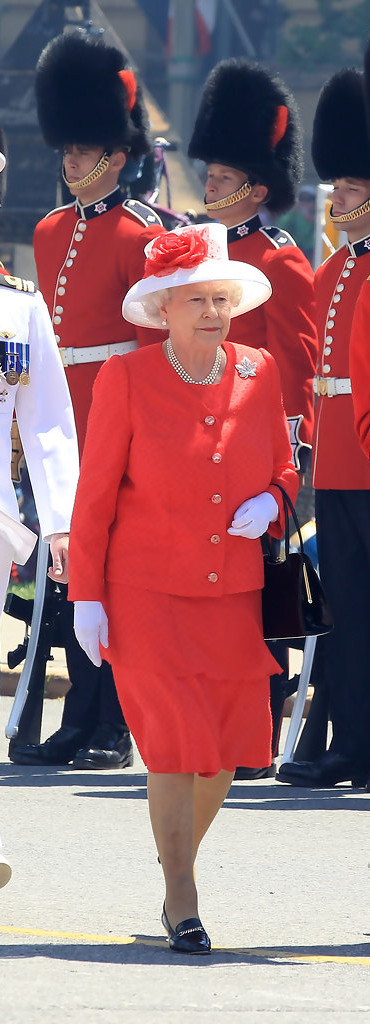
… I have gained a deeper understanding of and appreciation for our institutions and have seen the strength of our constitutional monarchy up close and at work. It has been a reassuring realization, and confirmation, for me. We are fortunate to have these institutional mechanisms in place.
Happy Victoria Day! For over 150 years, Canadians across our Dominion have celebrated today as the birthday of our head of state, beginning with Her Imperial Majesty Queen Victoria. Today, we continue that tradition by celebrating the official Canadian birthday of her great-great-granddaughter, Her Majesty Queen Elizabeth II – the only monarch most of us have ever known. She represents not only the stability and strength of our constitutional order, but also a voice of encouragement and resilience during these troubled times….long live the Queen.
We have that nation-to-nation relationship with the crown. We hold the crown and monarchy in high regard.
Our rights are protected by the Queen and not the government of Canada.
Her Majesty is renowned for her unwavering dedication to the Crown, her attention to detail, her sharp wit, her ability to connect with the people she meets and to inspire respect. But one of the qualities I admire most is her selflessness, her altruism and her belief in the decency of people. The Queen has held her life according to deeply held beliefs, influenced by her family and her faith. She frequently touches upon themes such as tolerance, children, the goodness of people and helping those in need. It’s the inherent goodness of our Queen that inspires so much admiration.
[The Queen] was, of course, gracious and insightful, with a unique and invaluable perspective… Her Majesty has been an important part of Canada’s history and I’m confident will remain an important part of our continued progress and our future.
J’aimerais profiter de l’occasion pour proposer quelques raisons qui font que l’institution de la monarchie est plus qu’une relique du passé et qu’elle est toujours pertinente pour le Canada en ce début de XXIe siècle.
Premièrement, de nombreux Canadiens demeurent très attachés à la monarchie et si d’autres ont une attitude plus détachée face à cette institution, ils n’ont aucune envie de priver de la reine tous ceux et celles qui l’aiment et qui veulent la garder. Cela témoigne d’une sensibilité et d’un respect des autres très canadiens. Deuxièmement, notre système confère tellement de pouvoirs au premier ministre qu’il est salutaire de retirer une part du prestige de l’État au titulaire de ce poste pour la remettre, même symboliquement, entre les mains d’une personnalité qui s’est préparée, depuis toujours, à incarner l’État et la nation. Troisièmement, le fait que le chef de l’État canadien vive dans un autre pays est une bizarrerie de notre système politique, mais cette bizarrerie nous sert bien. Grâce à elle, personne ne se demande si notre chef d’État est d’allégeance libérale, conservatrice, néo-démocrate ou favorable au Parti vert. Elle trône au-dessus de nos divisions partisanes, mieux que si elle était de notre sérail. Quatrièmement, nous, Canadiens, avons beaucoup de qualités, mais nous ne sommes pas des plus doués pour les débats symboliques. Il se pourrait bien que nous ne sachions pas par quoi ou par qui remplacer la monarchie. C’est arrivé aux Australiens.
Voilà donc quatre raisons qui justifient que l’institution monarchique sert bien notre démocratie. Cependant, il y en a une cinquième, soit le fait que Sa Majesté la reine Elizabeth II règne depuis tant de décennies avec une irréprochable dignité. Les célébrations du jubilé de diamant de Sa Majesté ayant pris fin récemment, je tiens à dire que le prince George, qui est destiné à une vie au service des autres, ne peut espérer meilleur modèle que son arrière-grand-mère. Sa Majesté a consacré l’ensemble de sa vie et de ses efforts au service des nombreuses nations gouvernées par la monarchie constitutionnelle. Au cours des 60 dernières années, elle a accompagné le Canada lors d’événements clés de son histoire, et au fil de l’évolution et de la transformation du pays, elle a été un monument de stabilité et une gardienne indéfectible de la tradition.
I believe it is the Crown in Canada that is the bedrock that helps to maintain the level of civility that we enjoy. Her Majesty has reigned for 60 years; what an incredible record of constancy. I truly believe it is this stability that allows us to develop our society in an orderly, civil manner and to move ever forward towards our special destiny.
When the Crown encountered indigenous peoples in Canada it created treaties of peace, friendship and respect, for as long as the grass grows, the rivers flow and the sun shines. All Canadians should be proud that their country was founded on such high principles.
Prince Charles has a particular interest in environmental issues, heritage and youth leadership — all of which are areas of great interest to First Nations.
The enduring strength of the Canadian Crown is the result of your hard work and devotion, and the affection and esteem in which you are held by Canadians as a consequence, is very real, and very deep… As Queen of Canada you share in the recent triumph of our Canadian Olympic hockey champions. And so we say that you are not only victorious, happy and glorious, you are also Canada’s most valuable player.
So many countries have followed [The Queen’s] wonderful example of compassion and generosity. Her kind words and steadfast leadership inspire nations around the world to continue to pursue and maintain peace, goodwill and international co-operation. The respect and admiration we feel for Her Majesty this May 24 illustrate the genuine affection and great loyalty our sovereign inspires.
Royal Visits are always a great honour for Canadians. Given our deep devotion to members of the Royal Family, and their devotion to Canada, these visits are regarded as “homecomings” by Canadians.
Queen Elizabeth II is Queen of Canada and head of state. The Governor General represents the Crown in Canada.
February 6 marks the anniversary of Her Majesty Queen Elizabeth II’s accession to the throne as Queen of Canada. For more than 50 years, Her Majesty has been a constant reminder of our heritage as a constitutional monarchy and of our unique identity—of our origins and of our constant evolution.
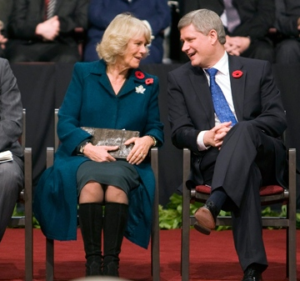
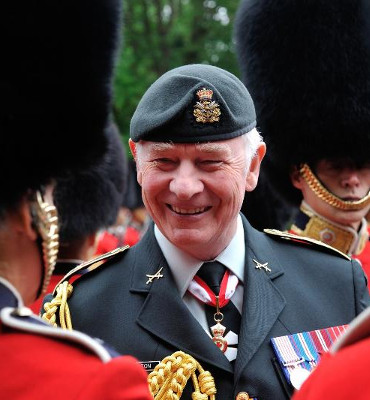
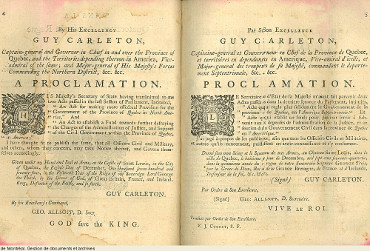
The Quebec Act, 1774
I cannot think of any Canadian institution where an expectation of loyalty and respect for the Queen would be more important than the Canadian Forces. Whether Capt. Mac Giolla Chainnigh likes it or not, the fact is that the Queen is his Commander-in-Chief and Canada’s head of state. A refusal to display loyalty and respect to the Queen where required by Canadian Forces’ policy would not only be an expression of profound disrespect and rudeness but it would also represent an unwillingness to adhere to hierarchical and lawful command structures that are fundamental to good discipline.
Our rights and freedoms flow from the thousand-year-old legal and parliamentary traditions we inherited from our founding nations, France and England. They are embodied in Canada’s Sovereign, Her Majesty Queen Elizabeth II, to whom you swore an oath of allegiance today. They have sustained our strong tradition of democracy and guided us throughout our proud history.
[…] At the heart of our relationship is the golden circle of the Crown which links us all together with the majestic past that takes us back to the Tudors, the Plantagenets, the Magna Carta, habeas corpus, petition of rights, and English common law […] all those massive stepping stones which the people of the British race shaped and forged to the joy, and peace, and glory of mankind […] much of what Canada is today we can trace to our origins as a colony of the British Empire. Now I know it’s unfashionable to refer to colonialism in anything other than negative terms. And certainly, no part of the world is unscarred by the excesses of empires. But in the Canadian context, the actions of the British Empire were […] occasionally brilliant. The magnanimous provisions of the Quebec Act of 1774 ensured the survival of the French language and culture in Canada—to the everlasting benefit of our country. And the treaties negotiated with the aboriginal inhabitants of our country, while far from perfect, were some of the fairest and most generous of the period. This genius for governance shown by the mother country at the time no doubt explains in part-why Canada’s path to independence was so long, patient and peaceful. And it explains why your Queen is still our Queen, and why our bond of comradeship remains as sturdy today as it was in Mr Churchill’s time.
As this is my first speech in the House as Prime Minister, I would like to acknowledge and thank a number of people. First, I would like to pay tribute to our head of state, Her Majesty Queen Elizabeth II, whose lifelong dedication to duty and self-sacrifice have been a source of inspiration and encouragement to the many countries that make up the Commonwealth and to the people of Canada.
Her Majesty remains at the head of the state, the living symbol of the roots and continuity of the values we hold in common and those that are our permanent ideals. She is there to remind us of the principles according to which we Canadians understand our government should be conducted, how the powers of the state should be arranged for our safety and protection. Without the Queen of Canada, without the sacredness and otherness of royalty, without her articulating the importance of the spiritual dimension in people’s lives, the office of the Governor General […] and that of the lieutenant governors would be seriously weakened. She is the one entrusted with the conscience of the nation [….]
When [The Queen] daintily bent over to drop a puck at an NHL game [—] she achieved perhaps the most brilliant melding of symbolism in Canadian history [….] The faces of the Canadians who did turn out to see her mirrored the face of the country. It wasn’t crowds of elderly WASPs—and the farther the Queen was from Ottawa, the bigger the crowds, which may be a statement in itself.
I think [the monarchy’s] great. We’re losing so many of our traditions. Let’s keep some of them. And let’s bring our kids into it.
Do Canadians have confidence that Mr Chretien, or his equivalent from any of the other federal parties, has the imagination to come up with the uniquely Canadian institution casually tossed off by Mr Manley, let alone the integrity to do it without yielding to partisan politics? Thus, one half of the equation centres on the monarchy itself, which has proven itself again on this tour a valuable and apolitical creation with genuine connections to a remarkable number of Canadians. The other lies with the federal political landscape and its remarkably shallow talent pool.
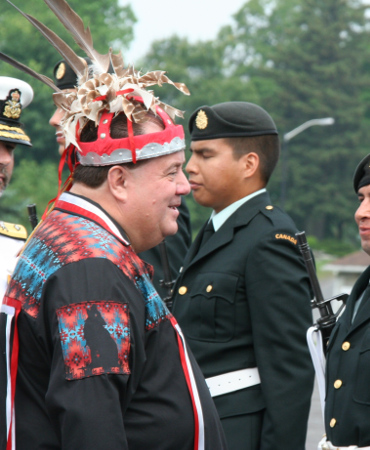
An Ally of The Queen, Chief Donald Maracle, Tyendinaga Mohawk Territory
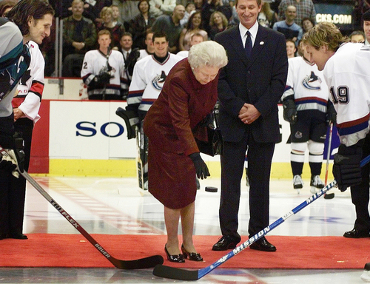
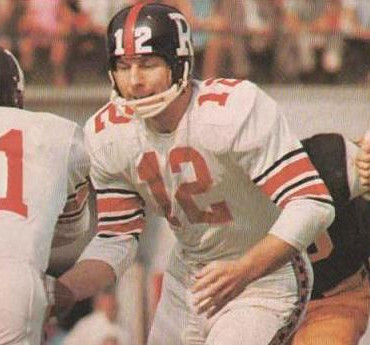
Retired CFL Quarterback, Russ Jackson
For me, putting my arms around The Queen or putting my arms around you, it’s no different [….] When I put my arm around The Queen, it was love. There’s no difference. She’s like us.
If there are those who wonder what purpose The Queen serves Canada in the third millennium, perhaps it’s this: Unlike our own politicians, too many of them, she has a deep and sincere regard for soldiers, a poignant and intrinsic attachment for those who stand on guard for thee […] when Queen Elizabeth II stands to take the salute […] there is no artifice. She is their commander, and not merely by the divine right of kings. She’s earned it.
We recall, with great honour, the political and military bond of mutual affection and alliance that has marked the relationship between the Mohawk people and the British and Canadian Crown for the last three centuries.
The Queen is in Canada to receive the thanks of Canadians after 50 years of service, and it’s richly deserved.
I have a considerable regard for The Queen and the monarchy although I’m a New Democrat and a socialist. I think that the monarchy has validity at a time when everything else is flying off in all directions. I’d like to tell her that she’s had a tough road and I sure in hell wouldn’t change places with her. I admire her stubborn refusal to break down and take the easy way, to conform with the constantly changing public image of how our leaders should act.
[…] And that’s the fundamental argument to be made for royalty. They represent. They are defiantly ordinary people [….] They are not movie stars, they are not extra-smart, they are not special. After learning from the blow-outs of the 1980s and 90s, they show up every day and, without fuss, do the work. They represent the values of ordinary middle-class families all over the world, who are restrained, sensible, kind, practical, steadfast, penny-pinching, punctual, dutiful, charitable, trustworthy and good. These are the values we must celebrate and promote, because these are the values, and no others, that make our lives possible; not the awful coruptions of Hollywood or the I’m so clever I must run your life egomania of Ottawa. That’s why we must keep the Windsors in perpetuity. And that’s why I’ll curtsy if I ever meet The Queen.
The Queen—our Queen—represents a Commonwealth based upon enduring freedoms, remarkable diversity and a tradition of lasting peace. She represents, in an extraordinary way, the values we all share.
If there are those who wonder what purpose The Queen serves Canada in the third millennium, perhaps it’s this: Unlike our own politicians, too many of them, she has a deep and sincere regard for soldiers, a poignant and intrinsic attachment for those who stand on guard for thee […] when Queen Elizabeth II stands to take the salute […] there is no artifice. She is their commander, and not merely by the divine right of kings. She’s earned it.
We recall, with great honour, the political and military bond of mutual affection and alliance that has marked the relationship between the Mohawk people and the British and Canadian Crown for the last three centuries.
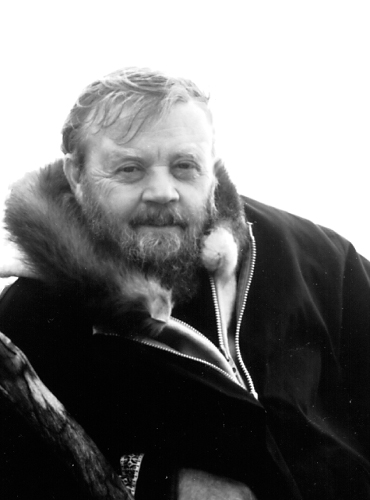
Farley Mowat
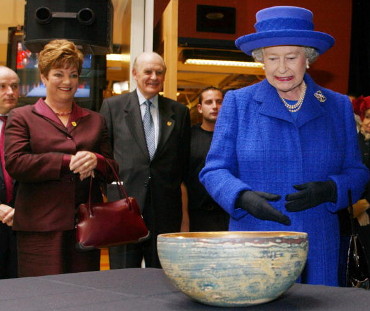
The Queen with her Minister of Canadian Heritage Sheila Copps (L) at Golden Jubilee Celebrations 2002
[…] Our ability to love inclines most naturally to persons, and in the person of The Queen we can invest all those many fractured loves that make up patriotic love: love of country, love of nation, love of culture, love of land, all combined and channeled through one person, one family[….]
In a world often focused on self-indulgence, on “my” desires and “my” priorities and “my” agenda, The Queen’s focus on the “we” and the “us” and on tolerance and getting along with each other, and on the needs and interests of others, has served as antidote, example and inspiration.
We do well to recall, in this year of Jubilee, that from her first days, Canada’s history has been inextricably linked to the Crown, under which it has flourished. The earliest European explorers and settlers were colonists whose enterprises were often chartered by the Kings and Queens of France and Britain. On these shores and fields they met the native peoples, with their own varying experience of tribal chieftains. Together with immigrants who subsequently arrived from many lands across the globe, they built a country strong and free, and they affirmed the desire expressed by Sir John A MacDonald to Queen Victoria, the Mother of Confederation, “to live under the sovereignty of Your Majesty and your family for ever.” From that time, the Maple Crown has adapted the best traditions of the old country, and grafted onto them many indigenous to Canada.
Fifty years after her accession to the Throne, Elizabeth II remains a symbol of continuity, stability and tradition in a world that is under a barrage of constant change […] a Sovereign, faithful and loyal to our people [….] The Queen and the heritage she gives to us is not just part of our past, but part of our common future [….] When you’re a mature country, you don’t need to break your ties with the past.
If there are those who wonder what purpose The Queen serves Canada in the third millennium, perhaps it’s this: Unlike our own politicians, too many of them, she has a deep and sincere regard for soldiers, a poignant and intrinsic attachment for those who stand on guard for thee […] when Queen Elizabeth II stands to take the salute […] there is no artifice. She is their commander, and not merely by the divine right of kings. She’s earned it.
We recall, with great honour, the political and military bond of mutual affection and alliance that has marked the relationship between the Mohawk people and the British and Canadian Crown for the last three centuries.
[The Queen] symbolizes for many the merits of a constitutional monarchy in which the head of state […] is separate and apart from the ongoing political struggles of the day.
I feel pride every time I go into a citizenship ceremony and I repeat the Oath of Citizenship and I pledge allegiance to the Queen.
We’re able to have the best of both worlds. We have the stability and the tradition of the monarchical system, but we also have a Canadian representative in the Governor General, who represents Canada as it is, as a Canadian, and does an incredible job representing the monarch, but also all Canadians.
The monarchy is something we’re an important part of. I like it for our country and I like it partly because it is something the Americans haven’t got.
If there are those who wonder what purpose The Queen serves Canada in the third millennium, perhaps it’s this: Unlike our own politicians, too many of them, she has a deep and sincere regard for soldiers, a poignant and intrinsic attachment for those who stand on guard for thee […] when Queen Elizabeth II stands to take the salute […] there is no artifice. She is their commander, and not merely by the divine right of kings. She’s earned it.
We recall, with great honour, the political and military bond of mutual affection and alliance that has marked the relationship between the Mohawk people and the British and Canadian Crown for the last three centuries.
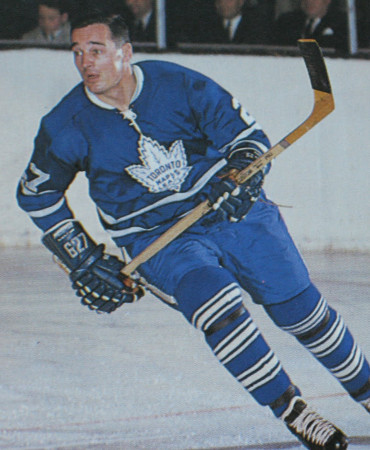
Senator and Former NHL Player, Frank Mahovlich
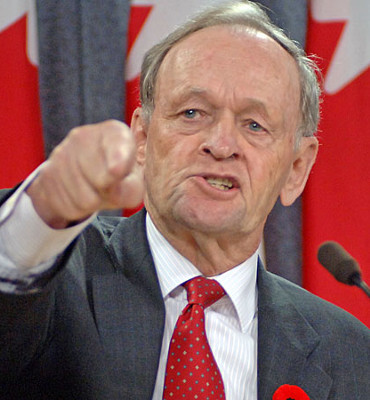
I think the monarchy is alive and well in New Brunswick.
Every time I come to Canada, and I’ve been here many times since 1970, a little more of Canada seeps into my bloodstream. And from there, straight into the heart.
The monarchy is not a problem in Canada […] it is not an issue at all.
The point to be made is that the Queen is our monarch and likely she and her successors will be all that will be available in that line of work. Our ruler only does what we say and only says what we ask be said, and goes where we tell her to go [….] But for all those who don’t want the Queen there are easily as many who don’t want a president and even more who certainly would not want one if they knew who it would be. As you can readily see, I have given more thought to this subject than most and I have reached my own conclusion. God save the Queen.
If there are those who wonder what purpose The Queen serves Canada in the third millennium, perhaps it’s this: Unlike our own politicians, too many of them, she has a deep and sincere regard for soldiers, a poignant and intrinsic attachment for those who stand on guard for thee […] when Queen Elizabeth II stands to take the salute […] there is no artifice. She is their commander, and not merely by the divine right of kings. She’s earned it.
We recall, with great honour, the political and military bond of mutual affection and alliance that has marked the relationship between the Mohawk people and the British and Canadian Crown for the last three centuries.
The monarchy is the last bulwark of democracy.
When you think about it, the American Revolution was promoted by the French. And they, Québec, refused to join. It was nothing to do with language but a lot to do with religion. And they felt more secure in the main, Catholics in Canada. More security for the religion, what the monarchy was giving them in those days, compared to the Americans. So they stayed.
For the monarchy is much more than a person. It embodies the constitutional framework of our freedoms, the set of beliefs and attitudes of tolerance that make up this great country and make it distinctive. The Queen is the symbol of what we are today and the history of which we are the result and which is part of us. If Canada were to abolish the monarchy we would be abolishing the symbol of our distinctiveness.
In a government like ours, the Crown is the abiding and unshakeable element in government, politicians may come and go, but the Crown remains and certains aspects of our system pertain to it which are not dependent on any political party. In this sense the Crown is the consecrated spirit of Canada.
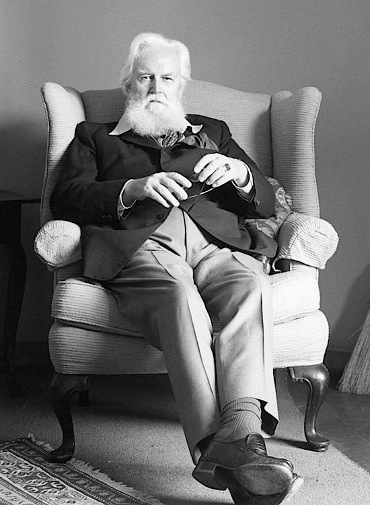
Canadian Literary Icon Robertson Davies
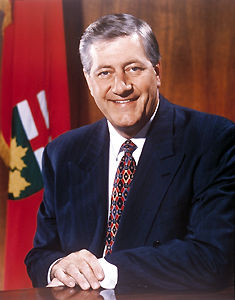
Former Ontario Premier Mike Harris
The Oath to the Queen is fundamental to the administration of law in this country. It signifies that, here in Canada, justice is done— not in the name of the Prime Minister, or the mayor, or the policec chief, as in totalitarian nations—but by the people, in the name of the Queen. Rather than being offensive, I submit that it’s one of the hallmarks of our society that attracts people to Canada.
[…] I was always impressed not only by the grace she [Queen Elizabeth II] displayed in public at all times, but by the wisdom she showed in private conversation.
The Crown has symbolised a continuity in the values of decency, fairness and equality before the law that have made this country great. And no Sovereign has served her Canadian subjects with more grace, more concern and more goodwill than has Queen Elizabeth II. The Queen’s sense of duty, her courage, warmth and her honour are known and appreciated by all Canadians.
Contact
(1-800) 465-6925
The Monarchist League of Canada
PO Box 1057
RPO Lakeshore West
Oakville, Ontario L6K 0B2
